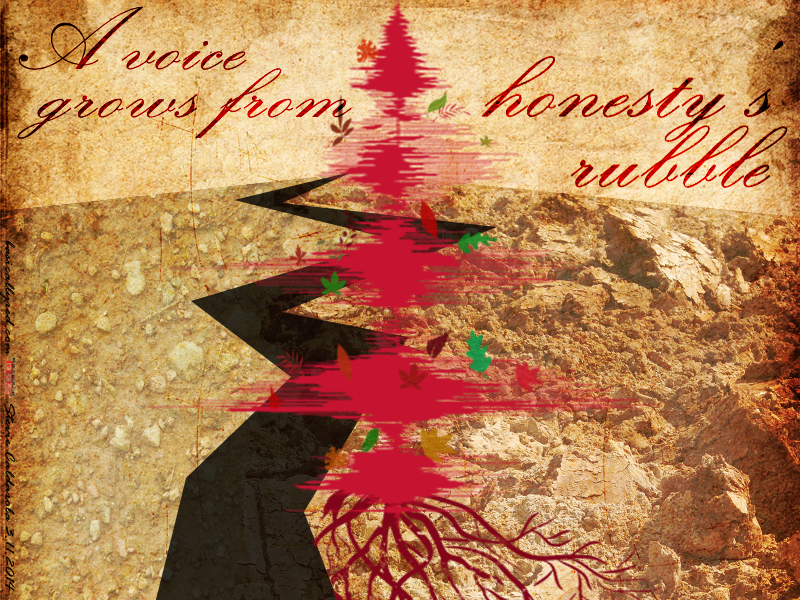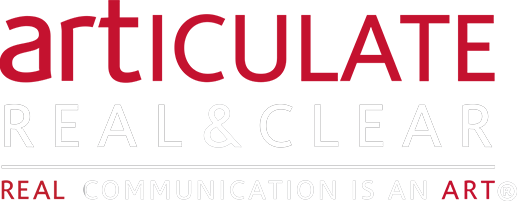 I’ve always thought of myself as an honest person.
I’ve always thought of myself as an honest person.
When I first signed up for a Voice & Speech class, I admit that part of my motivation stemmed from the whiff of theater cachet.
My family has a multi-generational love affair with the theater, with several relatives taking to the stage in their school and university days and afterwards, and one of them going on to complete both a BFA and MFA degree. Three are working professionally in the theater right now. My family took us to shows regularly as I was growing up — an advantage to living so close to New York City. I had a great time. To me, theater = fun: the joy of words, the transformation of lives, even for only an hour.
Of course, I couldn’t let myself take a Voice class purely for fun reasons, so I quickly found a professional cover for my interest. I am a member of Toastmasters, the leadership and communication organization, and could see how a closer look at voice and speech would fit well with my agenda of becoming a better speaker. I’m a freelance writer, you see, and in order to help earn our living, sometimes we have to speak, too.
There. Practicality: done.
Since I’m now on my fourth Voice & Speech class, it’s time to admit that neither of these reasons still holds water. Actually, when I say them I am, well… lying.
I keep coming back to working on Voice because it has been the single most powerful way for me to be honest. Which has been the single most powerful way for me to access my work.
Let me explain.
Most writers have to learn a painful lesson about what happens to our writing when, in the process of writing, we avoid topics or details or feelings that are uncomfortable, embarrassing, painful and/or self-revelatory. Our writing starts to blow Big Donkey Chunks (BDC).
There is absolutely no variation to this rule. Writers of fiction and of non-fiction, sci-fi and memoir and YA, are all equally handicapped.
If there is a topic or a truth which is uncomfortable and real, and I try to go around it, because either a) I’m worried about making my audience uncomfortable, or more often, b) I don’t want to be uncomfortable myself… that evasion is the equivalent of coming behind an opponent and slicing along his hamstring with my sword. I am hamstringing the work. From that point forward, all it will be able to do is limp and struggle for balance. Sure, it can stand where it is, and look as big as it did before, but try giving it one good shove. It will topple over sooner than an ice cream cone in hot weather. And it smells. BDC really smells.
To be honest, being honest is uncomfortable. Being honest means giving people access.
Guess how excited we writers are by this.
The expression “find your voice” has a comfortable seat at the table of writerly aphorisms. We use it as a metaphor in writing all of the time. “Finding our voice” is finding what is unique to us as a writer, the weird and untranslatable combination of style and word choice, grammar and sensibility, characters and themes.
Voice is when you pick up a work by someone and you can recognize immediately who it is. You know, even if you don’t know their name, if you’ve read anything else by this person before. You know Stephen King if you’ve read him before, even if the story is different. You know Barbara Kingsolver. You know Temple Grandin or Dave Barry immediately, the way they carry themselves with their words.
If writing fails if it’s not honest, and honesty means giving people access, then writing can only succeed by giving people access — to me, to the tender underbelly of what I really feel and believe, unprotected by the quills of my outward identity.
I started taking Voice because I wanted to get in touch with my writer’s voice. I wanted to tap into the creativity that was mine alone, which I couldn’t get from mimicking anybody else or providing content for anybody else. The scary and beautiful thing was that Voice unlocked a part of myself, one which I hadn’t realized existed and therefore didn’t know how inaccessibly I’d buried it. This part of me was big and muscular and emotional, and didn’t take too well to being told to go back to sleep once I roused it out of its long period of latency and night.
Honesty caused earthquakes.
For me, “voice” as a writer is not a metaphor. For me it’s a physical thing. The two actually touch — my vocal cords, and my writing. The one releases the other.
As soon as I brushed up against Honesty, I knew exactly when I was lying. My voice betrayed me. It betrays me on the page, and it betrays me in person.
Beyond that, my voice identifies me. And isn’t that what we all want — to be recognized?
But nobody is going to recognize us if we’re always in disguise. They’re not going to recognize our message, either. Writing isn’t the only thing that fails if we’re not honest.
Where is your voice betraying you?
Alexandra O’Connell
Artwork by Stevie Caldarola
“Alexandra has been a storyteller and a lover of stories all her life. She works as a freelance writer and editor serving creative small businesses and solo professionals in support of their story. You can find her on the web at www.alexoconnell.com.”






